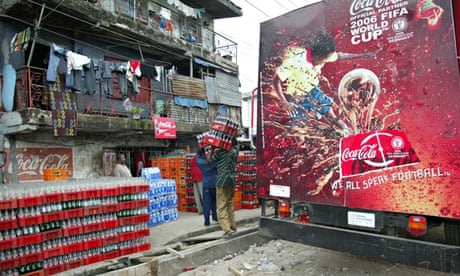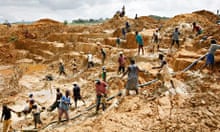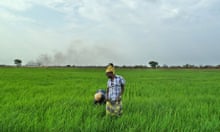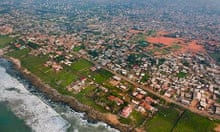Kenya has been hit by four major droughts in the past decade, each resulting in a humanitarian crisis. These cycles of drought are unlikely to change – but what has changed is the response.
Increasingly, we are seeing insurance companies stepping in. In 2010, UAP, a regional insurer, began offering micro-insurance policies which pay out $150 in the event that drought kills the livestock that sustain many Kenyan families. To keep the plan profitable, UAP then works to ensure that its micro-insurance clients know how to protect their cattle and other livestock from preventable illness. That is a win-win situation.
These insurance policies are part of a broader trend in humanitarian action: for-profit models that benefit businesses and those affected by crises. The firms gain when their clients and customers thrive or, at least, survive.
We are no longer discussing sustainability, social responsibility or shared value. We are talking about innovative businesses – few of which are officially "social enterprises" – that have figured out how to profit while meeting the needs of impoverished, war-torn or disaster-affected communities. Indeed, recent research by me and my colleagues shows that businesses often "try hardest" – bringing their technical expertise to bear on a problem – when it seems likely to generate profits in the short to medium term.
This model has been running for more than a decade in some industries. Mobile network operators such as Digicel and Safaricom have long been eager to sign up refugees and those affected by disasters, often giving away handsets or phone credit to earn brand loyalty. These arrangements help these firms gain new, paying clients and help refugees and others to remain in touch with family and seek assistance.
In some cases, such as micro-insurance, the models are intended to yield profits once they reach a certain scale. Others try to build a brand in a particular market by doing good and doing it visibly. Unilever has been supporting nutrition, hygiene and sanitation projects in Bangladesh, China, Kenya, Nigeria and elsewhere. This saves lives and improves health, and they help Unilever to introduce its core products to potential customers in rapidly developing economies.
We have seen these approaches from large global firms such as Procter & Gamble, Ikea, Coca-Cola, Google, Microsoft and Deloitte. But smaller businesses are seeing the value in catering to refugees and people affected by crises. In Jordan, Save the Children worked with local manufacturers to build quality shelters for Syrian refugees, creating jobs and business opportunities for Jordanians while reducing the NGO's reliance on more costly imported goods.
Aid agencies will always be necessary. Businesses are not going to be able – or necessarily want – to meet the needs of everyone affected by crises. And due to risk aversion, we have not seen many businesses getting involved in humanitarian emergencies caused by conflict, despite contributing in massive ways after natural disasters such as typhoon Haiyan in the Philippines in November.
However, aid agencies also need to be receptive to the necessary changes afoot. Some staff remain sceptical about private companies getting involved in responding to crises, fearful of exploitation in the name of profit margins.
But as long as businesses are run ethically, most people hit by disasters do not care if a soda company is distributing drinking water to build its market share and brand reputation. In an emergency, the outcomes – not the motives – should be the chief priority.
Steven A Zyck is co-author, with Randolph Kent, of the forthcoming report Humanitarian crises, emergency preparedness and response: the role of business and the private sector







